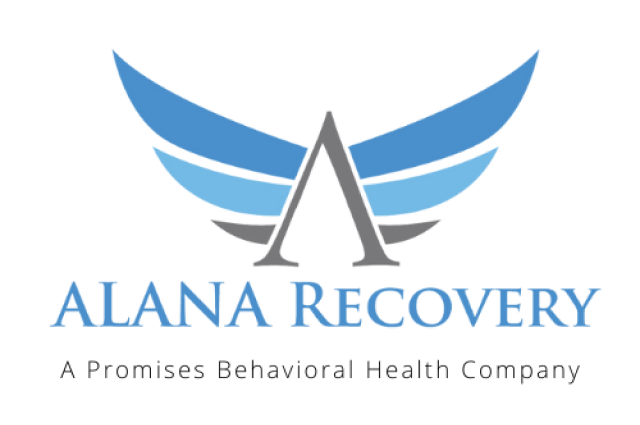Life in the Atlanta metro area can be fast-paced and overwhelming, particularly for individuals coping with trauma-related issues like anxiety and addiction. When anxiety feels unbearable, some people turn to substances like drugs or alcohol to manage their symptoms—a practice known as self-medicating. While this may provide temporary relief, it often leads to a dangerous cycle of addiction and worsening mental health.
Understanding the link between anxiety and addiction is essential for anyone struggling with these issues. ALANA Recovery offers an anxiety treatment program in addition to outpatient substance use disorder treatment. We understand the complexities of addiction and mental health and are here to help. Contact 770.759.7474 to get started on the road to recovery and enhanced well-being.
How Anxiety and Addiction Are Connected
Anxiety and addiction frequently intersect, feeding into each other’s cycle. Here’s how they relate to one another:
Self-Medication
Many people with anxiety use substances like alcohol, prescription medications, or illicit drugs in an attempt to numb their symptoms. Over time, this reliance can escalate into a full-blown addiction.
Brain Chemistry
Both anxiety and addiction affect the brain’s reward system. Chronic stress or anxiety can alter brain function, making individuals more vulnerable to substance use as a coping mechanism.
Stress Amplifiers
Addiction can heighten anxiety. Substances like alcohol or drugs may initially calm anxiety, but as dependence develops, withdrawal symptoms or the consequences of substance use (like strained relationships or job loss) can worsen feelings of anxiety.
Trauma as a Common Factor
For many in the Atlanta area, trauma is the root cause of both anxiety and substance use. Individuals who have experienced events like abuse, neglect, or serious accidents may feel imprisoned by anxiety, which can make substances seem like a short-term escape.
Signs of Co-Occurring Anxiety and Addiction
When anxiety and addiction occur together, it’s known as a co-occurring disorder or dual diagnosis. Recognizing the signs can help you or a loved one take the first steps toward recovery. Common indicators include:
Physical Symptoms
Chronic headaches, nausea, insomnia, restlessness, or tightness in the chest may point to anxiety. When paired with signs of addiction like slurred speech, red eyes, or unexplained weight changes, it may signal a dual issue.
Cognitive and Behavioral Issues
Worrying excessively, struggling with focus, and engaging in reckless or harmful behaviors (like substance abuse) often go hand-in-hand.
Dependence on Substances to Cope
Using drugs or alcohol to “take the edge off” or calm panicky feelings is a key red flag.
Intensifying Symptoms
Anxiety can worsen as addiction progresses. Similarly, withdrawal symptoms can mirror or amplify anxiety, making it more difficult to manage without professional help.
If these signs resonate with you or someone close to you, seeking treatment is critical. Left untreated, co-occurring anxiety and addiction can spiral into chronic health problems, relationship breakdowns, and even life-threatening situations.
The Role of Dual Diagnosis Treatment
The good news is that help is available. Dual diagnosis treatment is designed to address both anxiety and addiction together, providing patients with a comprehensive path toward long-term recovery. Here’s why it works:
Integrated Care for Both Conditions
Specialists tackle anxiety triggers and addiction simultaneously, so you’re not just treating a symptom but addressing the root of the problem.
Trauma-Focused Therapies
Many dual diagnosis programs include trauma-focused care to uncover and heal the origins of anxiety, which may also be fueling substance use.
Medication Management
For individuals with severe anxiety, medication may play a role in recovery. Dual diagnosis treatment ensures that medications are safely managed and monitored.
Relapse Prevention Strategies
Therapists teach coping tools to replace substances with healthier ways to deal with stress, fear, and uncertainty.
Supportive Therapy Options
Group therapy, individual counseling, and family support work together to rebuild trust, confidence, and a fulfilling life without dependence on substances.
At ALANA Recovery, we understand how to cope with anxiety and addiction in a healthy, productive way. Our clients receive individualized treatment plans and a combination of evidence-based therapies and holistic approaches to treat addiction and anxiety disorders.
A Path to Healing with ALANA Recovery
If you’re in the Atlanta area and struggling with the burden of anxiety and addiction, you’re not alone—and you don’t have to face this on your own. ALANA Recovery offers specialized care for people battling co-occurring disorders. Our compassionate professional team understands your unique challenges and is committed to helping you reclaim your life.
Through personalized treatment plans, trauma-informed therapy, and cutting-edge dual diagnosis care, we’re here to guide you toward a future filled with hope and healing. Take the first step today by contacting ALANA Recovery online or calling 770.759.7474 to learn how we can help you create a brighter tomorrow.

